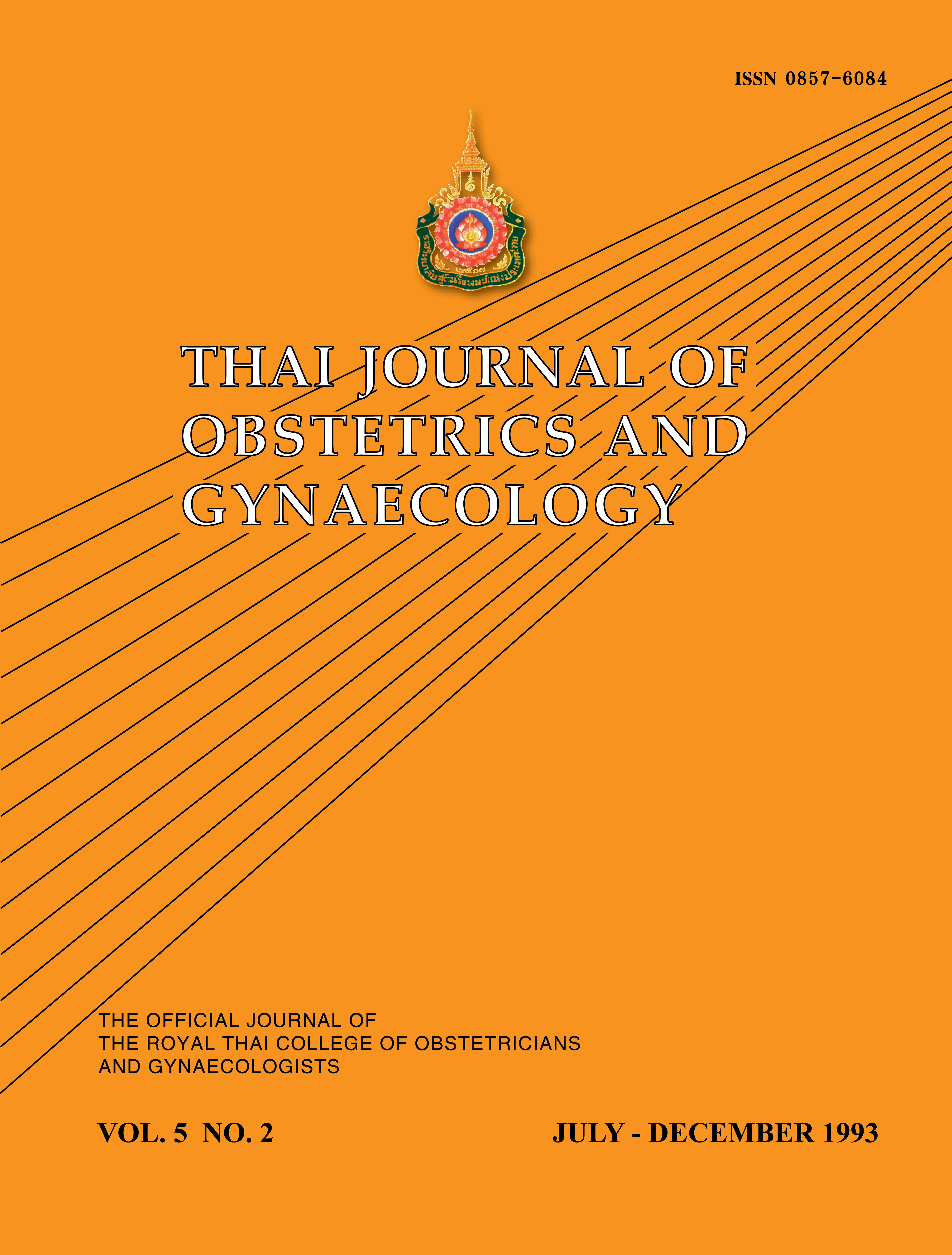Clinical Evaluation of Prostaglandin E, Gel for Preinduction Cervical Ripening in Term Pregnancy with a Low Bishop Score
Main Article Content
Abstract
Objective : A prospective clinical trial study investigating the therapeutic effect of prostaglandin E, gel in priming the cervix of patients with a low Bishop score.
Study Design : Pregnant women with low Bishop scores necessitating labour induction were enrolled in this study. Following the administration of intracervical prostaglandin E, gel Bishop scores were assessed at 6,12 and 24 hours thereafter. Repeated dose was given if no satisfactory change of Bishop score was achieved 24 hours later. Oxytocin was given if the Bishop score was > 4 and labour was not established or in some instances to augment inadequate uterine contraction. Mode of delivery, time interval to delivery, delivery outcome and complication were re corded.
Results : Of the 28 patients studied, the overall success rate of cervical ripening was 89.28%. Seven patients (25%) had spontaneous deliveries without oxytocin administration. Five patients (17.8%) necessitated repeated dose of prostaglangin E, gel and 3 patients (10.72%) failed to achieve satisfactory Bishop scores after second application. Caesarean section rate was 20%. Uterine hyperstimulation, diarrhea, transient fetal tachycardia and bradycardia were the adverse effects encountered.
Couclusion : Intracervical prostaglandin E, gel can be used successfully for cervical ripening in term and postterm pregnancies with low Bishop scores. (Thai J Obstet Gynaecol 1993; 5: 67-71.)
Article Details

This work is licensed under a Creative Commons Attribution-NonCommercial-NoDerivatives 4.0 International License.


